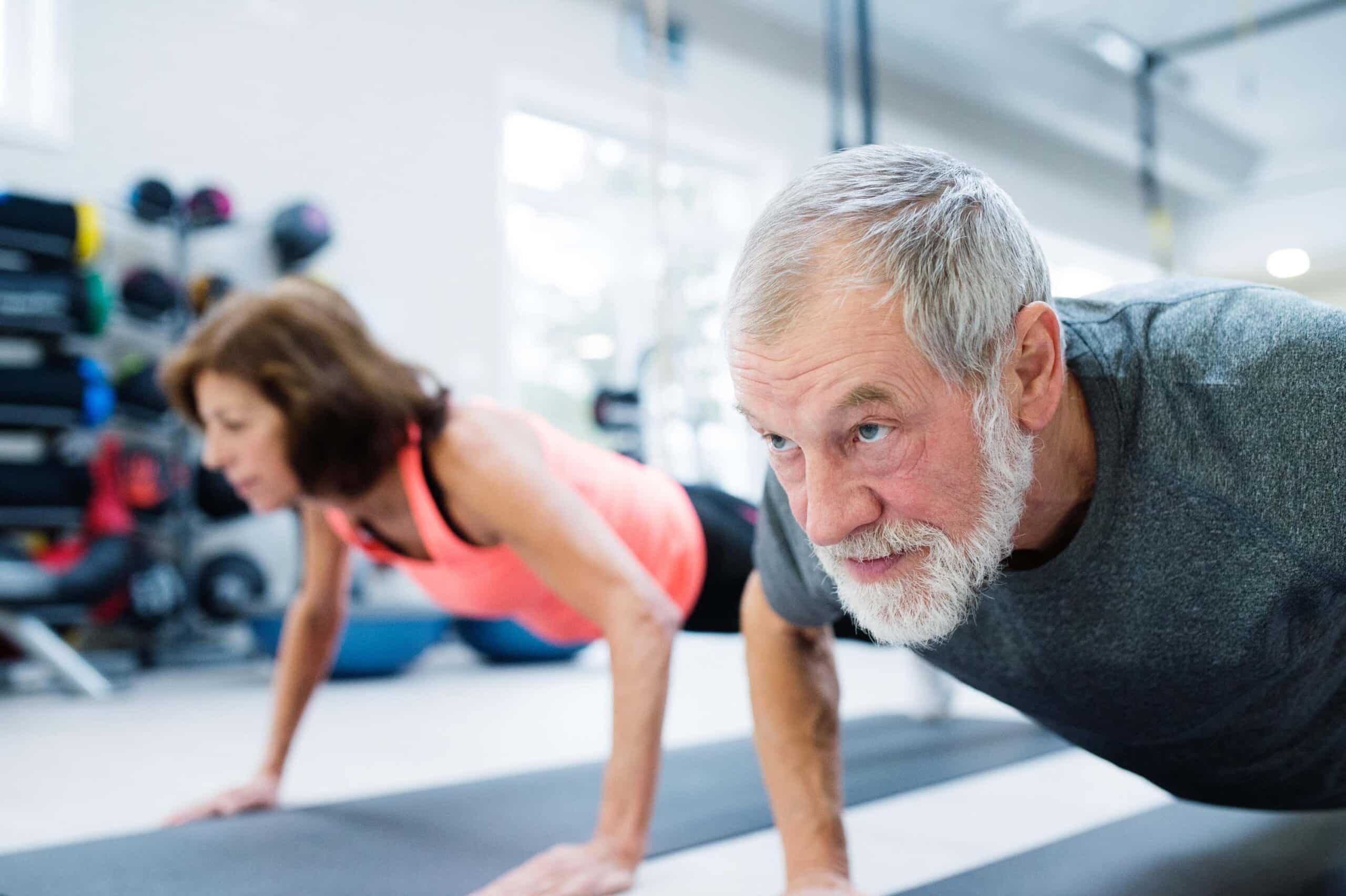While ageing has its own set of difficulties, maintaining physical fitness is crucial to a high standard of living. Our bodies require more specialised workouts as we age.
Regular exercise can significantly improve mobility and flexibility. It also enhances mental wellness and reduces the risk of chronic illness.
CDC states that adults with chronic diseases tend to be less active than those without any health issues.

In the U.S., a large percentage of older persons do not engage in the recommended amounts of physical exercise. Regular exercise is crucial for healthy ageing and prevention of chronic diseases.
Personalising your fitness routine to your changing needs is key and making these adjustments can result in a more active and healthy lifestyle.
Personalised Exercise Routines
Developing a personalized exercise regimen is essential to maintaining an active lifestyle as you become older.
Start with low-impact activities that won’t overly strain your joints, including swimming, biking, or walking.
Strength training is key for preserving bone density and muscle mass, making it an essential part of any fitness routine.
The American Heart Association notes that you should try to get at least 150 minutes of moderate-intensity exercise a week.
If your body allows it, you can also opt for 75 minutes of vigorous activity, ideally spread out over the week.
For best health, engage in moderate- to high-intensity muscle-strengthening exercises, including resistance training or weightlifting, at least twice a week.
Flexibility exercises, such as yoga and stretching, are fantastic for improving balance and mobility.
Always listen to your body and consult a fitness professional or physical therapist to develop a program that considers any pre-existing conditions or limitations.
The Importance of Medical Care
Regular medical care is a crucial component of fitness and overall health for seniors. Scheduling annual check-ups allows healthcare providers to monitor health metrics such as cholesterol, blood pressure, and glucose levels.
Staying informed on vaccinations, including flu and pneumonia shots, can help prevent illness.
Qualified clinical nurses play a crucial role in this process as they help manage chronic conditions and support patients in understanding their health needs. They help keep an eye on patients’ health to assess each person’s needs and spot risk factors.
Clinical nurses empower patients to take charge of their health by providing valuable education on medication management and lifestyle changes.
According to Baylor University, clinical nurses hold a Bachelor of Science in Nursing (BSN) or an Accelerated Bachelor of Science in Nursing (ABSN).
In healthcare, the BSN program places a strong emphasis on evidence-based procedures and critical thinking.
Meanwhile, ABSN programs provide a fast track for individuals with prior degrees, allowing them to quickly gain essential nursing skills.
Nurse.org mentions that ABSN programs usually last between 16 and 24 months, depending on the school.
Despite the shorter timeline, nurses who complete an ABSN are just as qualified as those with traditional nursing degrees. They must pass the same licensure exams and meet the same rigorous standards to ensure they provide high-quality care.
In recent years, many universities have expanded their offerings to include online nursing programs, making education more accessible for aspiring nurses.
An online accelerated BSN program provides a convenient option to transition into nursing for those eligible.
This flexibility enables students to integrate their studies with other commitments while quickly obtaining the necessary certifications to enter the healthcare industry.
Discuss any changes in physical ability or new symptoms with your healthcare team, as they can provide advice or referrals to specialists if needed.
Furthermore, consider enrolling in preventive health programs that focus on fall prevention, chronic disease management, or physical rehabilitation.
Building a close relationship with your healthcare practitioner ensures that you receive personalised treatment, advocating a proactive attitude to your health as you age.
Nutritional Adjustments
A well-balanced diet is essential for seniors’ health and energy levels. Choose entire foods high in nutrients, such as vegetables, fruits, whole grains, lean meats, and healthy fats.
Include meals with calcium and vitamin D to maintain bone health, as osteoporosis is a significant problem among older people.
The National Council on Aging highlights that In the United States, osteoporosis affects around 50 million individuals.
While both men and women can develop it, women are four times more likely to be affected. The risk of osteoporosis increases with age, and many women start to experience its effects around menopause.
Drinking eight glasses of water or more a day will help you stay adequately hydrated and prevent dehydration.
Consider eating smaller meals more often throughout the day as this will help maintain energy levels.
This approach can keep you energized and support your overall health. Speaking with a certified dietitian can offer individualised counsel to ensure that you satisfy your nutritional needs while managing any particular health issues.
FAQs
What are safe exercises for joint pain?
Low-impact activities like walking, cycling, and swimming are great for those with joint discomfort.
These exercises improve muscular strength without overly stressing the joints. Stretching and yoga are two examples of flexibility exercises that can increase the range of motion and lessen pain.
How often should seniors see their doctor?
Seniors should aim for at least one annual check-up to monitor important health metrics. Regular visits allow healthcare providers to assess any changes and recommend adjustments to treatment plans.
For those managing chronic conditions, more frequent visits may be necessary.
What dietary changes support bone health?
To keep your bones healthy, focus on including plenty of calcium-rich foods in your diet. Consider dairy, leafy greens, and fortified products as they’re all great choices.
Don’t forget about vitamin D, either, it’s crucial for calcium absorption. When you pair these nutrients with regular exercise, you’re taking important steps to prevent osteoporosis as you age.
As we age, it becomes ever more crucial to maintain excellent health and an active lifestyle. With personalised exercise routines, regular medical check-ups, and a balanced diet, seniors can enjoy a more independent and fulfilling life.
It’s important to consult healthcare professionals to create a plan that fits individual needs. You can continue embracing an active lifestyle well into your golden years by focusing on these key strategies.





